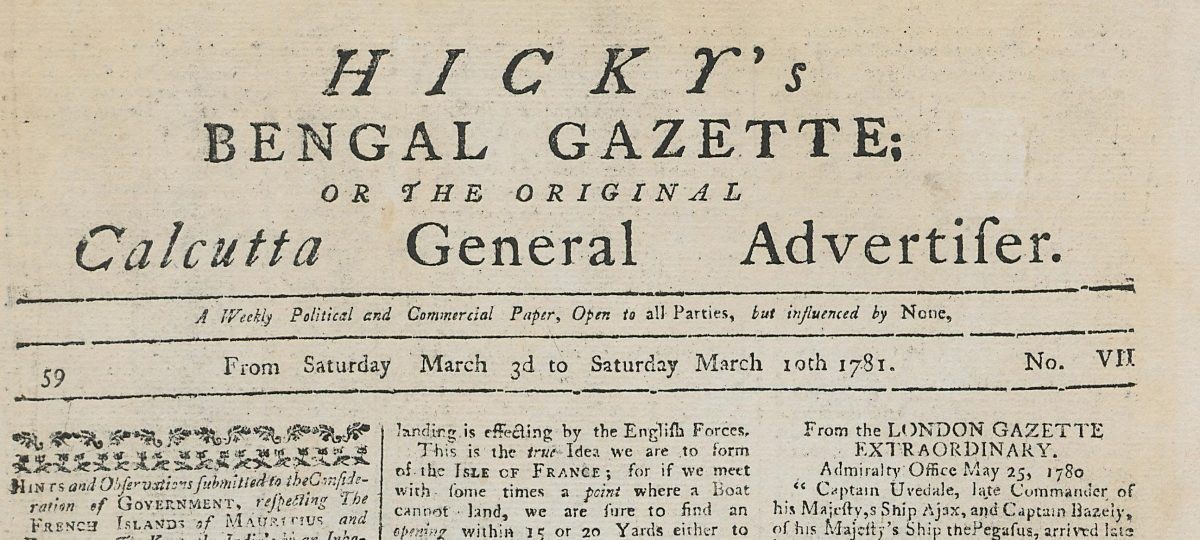Free Courses Sale ends Soon, Get It Now


Free Courses Sale ends Soon, Get It Now



Disclaimer: Copyright infringement not intended.
Context
World Press Freedom Day
|
Guillermo Cano World Press Freedom Prize UNESCO marks World Press Freedom Day by conferring the UNESCO/Guillermo Cano World Press Freedom Prize on a deserving individual, organisation, or institution. This award recognizes those who have made an outstanding contribution to the defense and/or promotion of press freedom anywhere in the world. Created in 1997, the prize is awarded on the recommendation of an independent jury of 14 news professionals. The Prize is named in honour of Guillermo Cano Isaza, a Colombian journalist. He was assassinated in front of the offices of his newspaper, El Espectador, in Bogotá, on 17 December 1986. Cano's writings had offended Colombia's powerful drug barons. |
'Hicky's Bengal Gazette'
|
William Bolts William Bolts (1738–1808) was a Dutch-born British merchant active in India. He began his career as an employee of the East India Company, and subsequently became an independent merchant. He is best known today for his 1772 book, Considerations on India Affairs, which detailed the administration of the East India Company in Bengal which began shortly after their victory in the Battle of Plassey in 1757. The observations and experiences he recorded offer a unique resource for scholars inquiring into the nature of Company rule in Bengal. |
|
PRACTICE QUESTION Q. Who authored "Considerations on India Affairs," which detailed the administration of the East India Company in Bengal? A.Robert Clive B.William Bolts C.Thomas Babington Macaulay D.Sir Syed Ahmed Khan Answer) B. |
SOURCE: THE INDIAN EXPRESS
© 2024 iasgyan. All right reserved